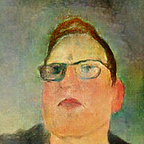Is Kavanaugh ‘innocent until proven guilty?’
Like any major controversy that dominates public discourse for weeks on end, the arguments over Brett Kavanaugh’s confirmation have become mind-numbingly repetitive .
The struggle by the pundit class to come up with something new and original has yielded some desperate reaches, such as Ed Whelan’s “doppelgänger theory,” but many more, like White House Press Secretary Sarah Huckabee Sanders, will simply resort to the old standby: Kavanaugh is innocent until proven guilty.
The appeal of such an argument is obvious. Unlike other morally repugnant “boys will be boys” rationalizations, this one seems to offer some kind of high ground. To argue the other side is to go against one of America’s most venerable and sacred principles.
While the presumption of innocence forms the bedrock of the criminal justice system, Kavanaugh is not on trial for any crime. In a criminal context, the burden of proof is on the prosecutor making the charge, but in a confirmation hearing, it rests squarely on the one seeking office. What must be proven beyond the “shadow of a reasonable doubt” is whether Kavanaugh is the right person for the job.
Credible allegations of wrongdoing—even if they fail to meet the justifiably high standards of a criminal court—should be sufficient to create reasonable doubt about Kavanaugh’s lifelong appointment to the highest court in the land.
These particular charges are especially relevant given what’s at stake. Women’s access to abortion hangs in the balance, and there shouldn’t be a shred of doubt whether the person making these judgments has respect for a woman’s bodily autonomy.
This is not to say that all allegations should be taken at face value or that due process is irrelevant, but in this instance, the standard resembles more closely that of a civil trial, i.e. a “preponderance of evidence,” and so far, that appears to be on the side of his accusers.
As it stands, three women have given sworn statements under penalty of perjury, and what the latter two have said is remarkably consistent with the claims of the original accuser Christine Blasey Ford.
By contrast, Kavanaugh’s defense consists of: character testimony from female friends and coworkers, personal calendars of his activities as a teen and statements from his close friend Mark Judge, whom Ford alleges was his accomplice in the attempted rape.
Judge is a writer by trade and a substantial portion of his own portfolio—most notably his memoir Wasted: Tales of Gen X Drunk—corroborates the general narrative advanced by Kavanaugh’s accusers. What’s more, Judge’s ex-girlfriend has stated that he confessed to “taking advantage” of drunk girls. This is consistent with a sworn statement by Julie Swetnick who said that she witnessed Judge and Kavanaugh waiting their turn to “run a train” on incapacitated girls at a party.
Then there is the general guilty behavior of both Kavanaugh and Judge. Kavanaugh has been noncommittal about submitting to an FBI investigation, whereas his accusers have welcomed the opportunity. Judge, on the advice of his attorney, is hiding out a beach house in Delaware.
The rape allegations, proven or not, raise serious concerns and it’s on Kavanaugh and his backers in congress to assuage them. So far they haven’t done this.
Kavanaugh is not innocent until proven guilty. He is unfit for office until proven otherwise. █
